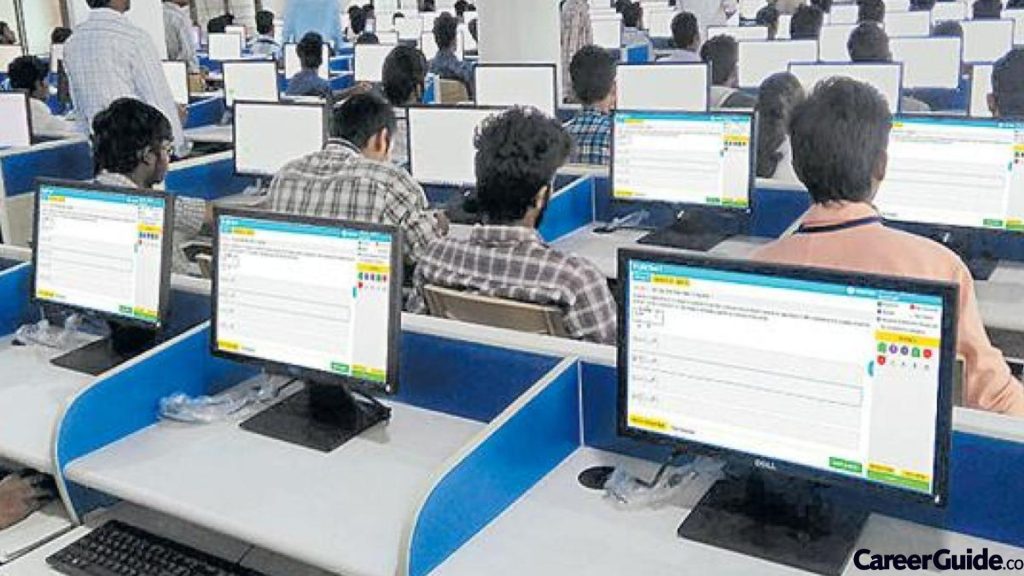EAMCET entrance exam stands for Engineering Agricultural and Medical Common Entrance Test that is conducted by the government in the states of Telangana and Andhra Pradesh in India. It is a joint entrance examination to gain admission into various fields of science such as engineering, medical, and agriculture. Much like any other entrance exam for colleges, the EAMCET entrance exam is also a tough nut to crack. Here is article on 9 Tips to crack EAMCET exam after Class 12th
A successful rank in this entrance examination can mean you land in some of the best colleges across the states of Telangana and Andhra Pradesh. Any entrance examination can be dealt with successfully if students keep in mind a few tips and tricks. In this article, we mention everything the students need to know to crack the EAMCET entrance exam after 12th.
Thorough in Syllabus
The first and foremost step toward good preparation for any entrance examination or exam is to know the syllabus. Once the students know that they will be appearing for the EAMCET, they must find out the syllabus that will be covered in the examination. This should be done only through reliable resources as the EAMCET is a popular examination in the states of the Telangana and Andhra Pradesh and there is a lot of wrong and misleading information that is fed to students that are a complete scam.
Know the exam pattern
Depending on what course you are applying for, the EAMCET paper contains 160 questions out of which 40 are from physics, 40 from chemistry, 80 from mathematics for engineering students while for agricultural and medical students 80 are from biology which further consists of botany and zoology. Each question will have four options and There is no negative marking, each correct answer will earn the student one point. Each section contains both theoretical and conceptual based questions, so students need to focus both on their learning abilities as well as their understanding abilities.
Best books to refer
For any entrance examination, NCERT books are the best books to refer to and the EAMCET entrance exam is no different. Physics and chemistry can completely be covered by the NCERT textbooks, math and biology will require some extra preparation by selecting a few books our study materials that have been specifically designed for the purpose of an entrance examination.
Study daily
Persistence is key when studying for any examination. No matter how tired or busy the student is on a particular day, they should always find the right time to study for their examination as any entrance examination can have a huge impact on their college and thereby, the whole life. It is not enough to study for two to three hours every day as this is not sufficient to gain good marks, it is only sufficient to score passing marks. If a student really wants to score a high rank and get offers from top institutes, then they have to invest at least six hours of study every day.
Make a timetable
Trying to study without a timetable is like trying to cook without a stove. It is just not possible, and even if you think it is, your dish will not be as good as it would have been had you had a stove. These days, many students tend to study without a timetable and start learning anything they feel like studying that day. Though this may be less burdening, it does not reward the same benefits as studying using a timetable does. Studying using a timetable helps students in their studies as well as improve their time management and organizational skills.
Be strong in basics
It is impossible to study mathematics without knowing basic quadratic formulas, impossible to study physics without knowing the concepts of force or gravity, impossible to study organic chemistry when you don’t even know the elements in the periodic table, impossible to study botany and zoology when you don’t even know what amoeba is. Therefore, it is safe to say that one must always be strong in basics to crack more difficult questions.
Previous year question papers
No preparation for an examination is complete until a student practice the previous year question papers or mock test papers. It is the most crucial step to test oneself and their preparation before an examination. It can help them identify and realize their mistakes, which will prevent them from making the same mistakes in the future. It also helps the students manage time better when they appear for the actual exam and they feel less pressure.
Proper Revision
At the end of the preparation, it is an absolute must to engage in proper revision so that your brain has a quick refresh and recap of everything it went through for the past month or so. Proper revision means making use of proper devising tools such as small notes on flashcards that help you get through different topics faster and make you more focused on important topics.
Don’t prepare hastily
If you have missed out on a few top things before the exam, do not try to cover it up in one night. This will do absolutely no good and can lead to more stress which will make you forget other topics as well. A request to all students is to avoid last-minute preparation of new topics as they should focus the last moments before the examination only for revision and prayers.














